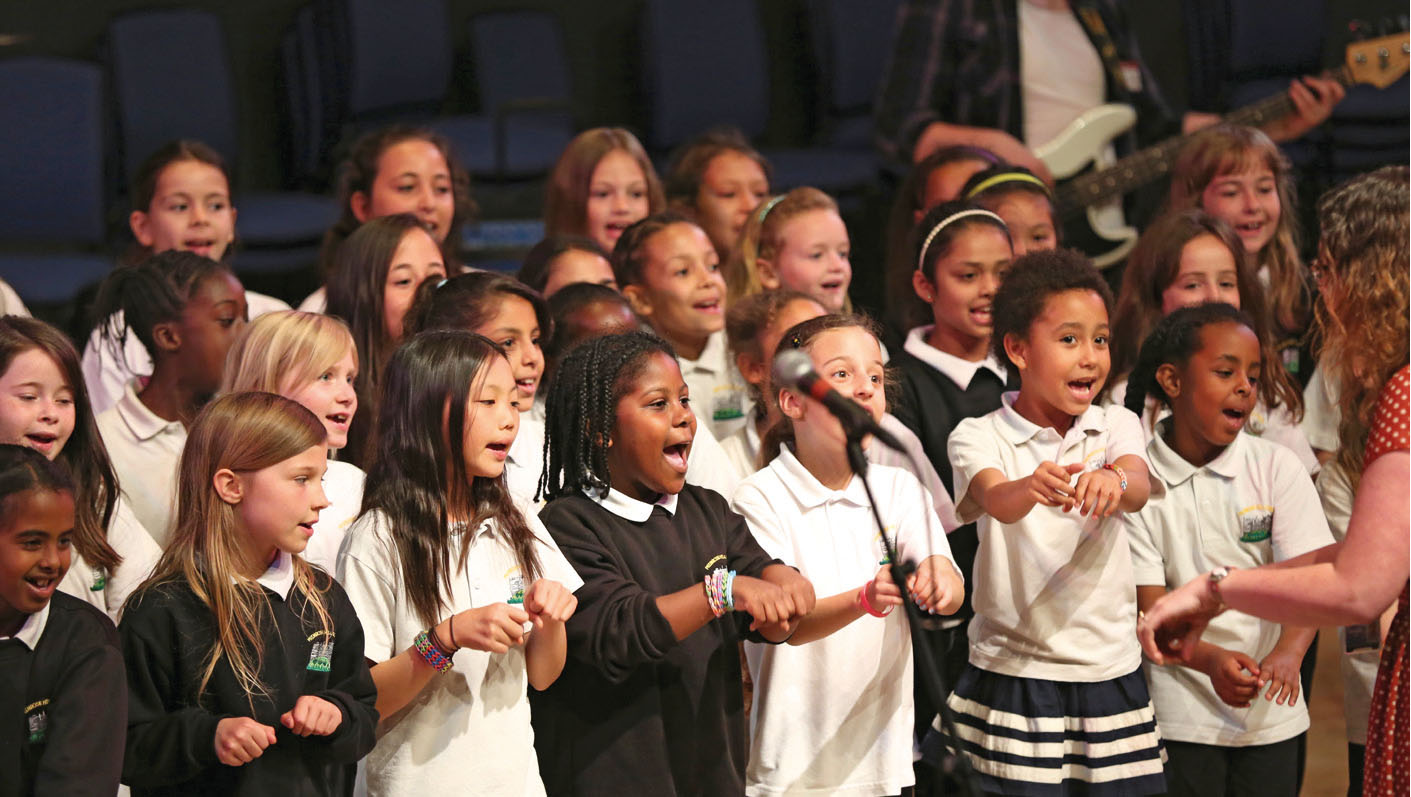
What is EFDSS?
We're the national folk arts development organisation for England. Based at our folk arts centre, Cecil Sharp House in North London, we look after the Vaughan Williams Memorial Library, England's designated folk library and archive. We run a dynamic education programme working across England with schools, music education hubs and other cultural organisations, and a thriving artists’ development programme. We also run the National Youth Folk Ensemble.
What do you offer teachers and students?
We provide resources, information and creative learning projects at all Key Stages, for mainstream and special education. This enables teachers to use dance and folk music – both song and instrumental – across the curriculum.
A project I'm really enjoying at the moment is with Essex Music Education Hub delivering the Essex Folk Song Discovery project in primary and secondary schools, supporting the hub's vocal strategy while at the same time uncovering and sharing local cultural heritage and history.
We also deliver CPD sessions for teachers and music education hubs; provide free downloadable resources on our award-winning Resource Bank (www.efdss.org/resourcebank); and run the Folk Educators Group national network.
There are plenty of opportunities to develop skills and knowledge through our thriving youth, adult, and family programmes at Cecil Sharp House, including instrumental and dance classes, choirs and youth holiday courses.
How do people react to your workshops?
We're always struck by the enthusiasm when learning material is presented to students in a relevant manner, particularly if it has origins in their local area. It gives them a sense of place, of history, and the opportunity to become part of a living tradition.
 An EFDSS workshop at Primrose Hill School (Image: Roswitha Chesher)
An EFDSS workshop at Primrose Hill School (Image: Roswitha Chesher)
Dance workshops are overwhelmingly well-received and a fantastic way to get a class working together, covering the music and PE/dance curriculum while having fun. With no music notation, our instrumental workshops offer a fresh approach to music-making; students listen to each other and work creatively with tunes they can arrange and perform.
How is folk music perceived?
There's still a lack of awareness about English folk music and how it can enhance and extend learning, but this is changing. There's a growing interest from schools, hubs, higher education and conservatoires in providing more opportunities to study and participate in the folk arts.
How can it help in cross-cultural projects?
We're committed to cross-cultural dialogue and exploration, and our art forms are adaptable and accessible. Many songs commentate on love, travel, war, migration and social justice – themes that are relevant to people from diverse backgrounds today and can be used as a basis for songwriting and creative ideas.
The aural approach to learning and playing is shared with lots of cultures, many of which have travelled around the world, absorbing influences.
We collaborate with artists from different cultures. We've worked with Brazilian jazz musician Adriano Adewale in our Black Sailors and Sea Shanties resource – the first we produced for Black History Month. We also have an artistic partnership with cross-cultural dance group Folk Dance Remixed, fusing folk and hip-hop dance and music.
Can you help the non-specialist music teacher?
Absolutely, through freely downloadable resource packs from our Resource Bank with teachers’ notes, audio, notation and lyrics. Popular ones include Sea Songs and Shanties for Tall Ships, Ceilidh Band Project, Coal Mining with Folk Arts and Poetry (developed with the National Coal Mining Museum for England), and Songs of Rural Life (which includes Makaton signs for use in SEN/D settings). We also run bespoke CPD sessions and training days on topics such as running a ceilidh band, using simple tunes and dances, or singing sea songs.
How can people get involved?
We're running a series of free sampler days in May and June 2018, in which young instrumentalists can work with the National Youth Folk Ensemble team for a day of folk music workshops and, if they wish, audition for the 2018-19 cohort.
How do schools pay for your services?
Our Resource Bank is free. Often projects are free for schools, for example where hubs commission our services, or as part of a funded project organised by us or a partner organisation.
Some schools also directly purchase workshops from us.
Is this just about singing or does it involve other areas of the curriculum?
Folk reaches across the curriculum, beyond performing arts into English, history, geography, PSHE, citizenship and British values.
How has your Resource Bank benefited schools?
Our fabulous Ceilidh Band Project resource, developed with Camden Music, has been used recently by many schools in Portsmouth. They have been playing ceilidh tunes and participating in the accompanying dances via a successful project led by Portsmouth Music Hub with local folk organisation FolkActive.
Sue Beckett, the CEO of Portsmouth Music Hub, told me: ‘The schools and children have loved it. I love going to the ceilidhs – the joy, laughter, excitement and enthusiasm reminds me why I do this job. It's about making a difference to children's lives and these events most certainly do.’




